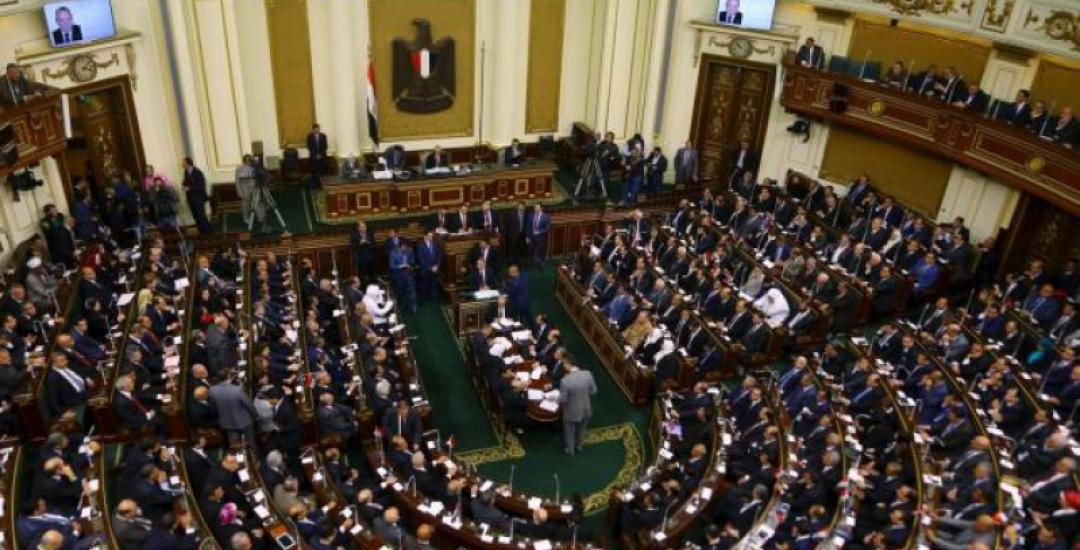
On 15 November 2016, the Egyptian Parliament proposed a flawed new draft NGO Law that replaces both the previous 2002 Law on Associations and the draft NGO Law that was presented by the government earlier this year. The latter, which was proposed by Egypt’s cabinet in September 2016 and presented to the Parliament for review, sparked wide criticism in Egypt; Alkarama had consequently sent a communication to the Special Rapporteur on the rights to freedom of peaceful assembly and of association (SR FPAA) to solicit his urgent intervention on the matter.
Given the alarming content of this newly issued draft NGO Law – yet to be adopted – which violates both the Egyptian Constitution and international human rights instruments, on 15 November 2016 Alkarama sent another communication to the SR FPAA to urge him to intervene with the Egyptian authorities to request that they suspend or amend this law, before enacting it. Alkarama’s communication highlighted the problematic provisions embedded in the law, such as the tight control of the State allowed over local and international associations operating in the country, the harsh sanctions put forward in case NGOs violate the law, as well as the supervision of Intelligence Services over the funds and activities of associations.
The new draft NGO law, entitled “Resolving the Law of Civil Associations, Foundations, and Organizations Performing Civil Activities” resembles the flawed draft NGO Law that was proposed by the government earlier this year, imposing rules on the way NGOs operate in the country, implement their activities and receive funds. According to the law, all these actions must be overseen by State agencies, which can in turn validate, modify, or cancel NGOs activities, as much as close down any association. This ability to interfere in all NGOs affairs is mandated to an “administrative entity” – whose composition is yet to be clarified – and to a “coordination committee”, the latter being also composed of representatives of the Central Intelligence Agency (جهاز المخابرات العامة), the Ministry of Defence and the Ministry of Interior. The administrative entity and the coordination committee oversee applications for registrations and fully monitor all activities of NGOs’, including funding. This means that intelligence and security services would, once more, be monitoring NGOs.
The law further restricts NGOs’ activities and efficiency, through allowing State administrative bodies to assess their registration application and compelling them to follow complicated administrative procedures to carry out their activities and receive funds, if approved at all. State agencies are also allowed to access all NGOs’ materials and registers, bank accounts and premises. Furthermore, according to the new law, NGOs’ activities must be exclusively in the interest of what is vaguely referred to as “social development goals” or “the needs of Egyptian society”. Additionally, prohibitions remain manifold and include, amongst others, the banning of activities relating to politics, supporting elections’ candidates or syndicates, or any action that undermines the “public order” or “national security”. Once more, such blurred definitions opened to interpretation can be used to restrict citizens’ rights and freedoms. Finally, a section of the law entitled “punishments” mandates for harsh and disproportionate sanctions for those who contravene the law, including up to five years in detention.
This new draft NGO law is therefore not only at odds with international human rights law instruments mandating for the right to freely exercise the fundamental rights of association, it also contravenes the 2014 Egyptian Constitution, specifically its article 75 advocating for the right of associations to freely conduct their activities. Furthermore, this law is in breach of clear dispositions given by the Human Rights Council on several occasions, namely Resolutions issued in March 2016 (A/HRC/RES/31/32) and in March 2013 (A/HRC/RES/22/L.13).
“The new draft NGO law strongly limits Egyptian citizens’ rights to association, it contravenes basic human rights precepts, as well as the Egyptian Constitution itself,” commented Simone Di Stefano, Alkarama’s Regional Legal Officer for the Nile. “If enacted, this law is likely to be used, as proven in the past, as a tool for State repression and to curtail individuals’ fundamental rights and freedoms.”
In view of this, Alkarama fears that this new draft NGO law, if enacted, would be used to further repress Egyptian citizens’ rights to freedom of association and to target human rights defenders. It therefore sent a communication to the SR FPAAto inform him of these flawed legal provisions and to ask his urgent intervention with the Egyptian authorities to suspend or modify the law, before it being adopted. Alkarama also calls on the Egyptian authorities to review this draft law and to bring it in line with international human rights instruments.
For more information or an interview, please contact media@alkarama.org (Tel: +41 22 734 1008).
